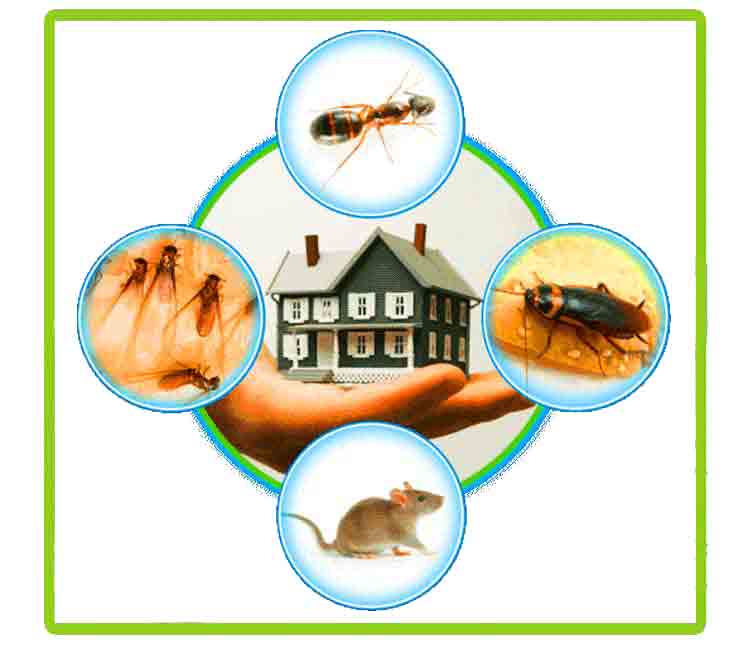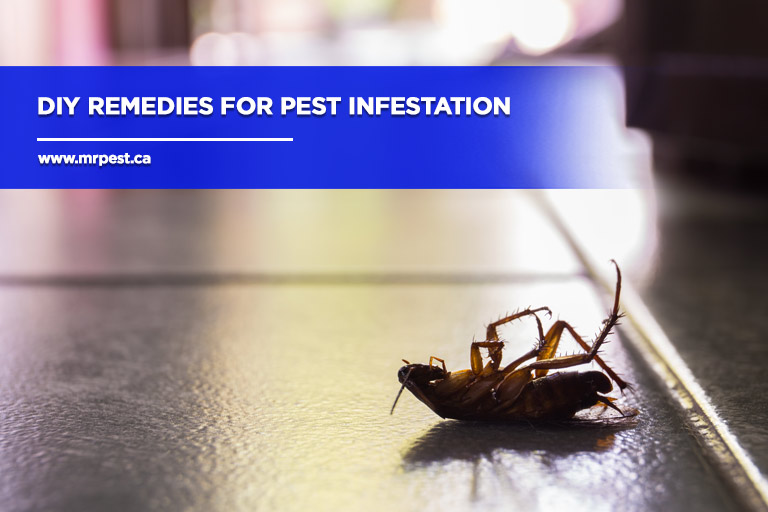Experienced Coquitlam Exterminator for Comprehensive Pest Removal
Experienced Coquitlam Exterminator for Comprehensive Pest Removal
Blog Article
Safe and Reputable Parasite Control for Lasting Protection
Efficient insect management needs a multifaceted approach that balances ecological honesty with the requirement for effective bug suppression. The subtleties of these approaches might not be promptly clear, triggering a closer examination of the practices that can lead to lasting parasite control results.
Understanding Bug Control Methods
Pest control incorporates a variety of approaches aimed at handling and removing undesirable pests and rats that can endanger both health and wellness and building. Comprehending these techniques is crucial for reliable bug monitoring.
The key groups of parasite control approaches consist of mechanical, organic, and chemical approaches. Mechanical approaches include physical obstacles and traps to prevent pest entry and capture undesirable types. Making use of displays on home windows or employing sticky catches can significantly reduce insect populaces without introducing harmful compounds - exterminator coquitlam.

Chemical bug control is frequently one of the most recognized method, making use of chemicals to remove insects. These chemicals can be reliable but need to be made use of with caution to stay clear of unfavorable results on non-target varieties and the setting.
Benefits of Eco-Friendly Solutions
Just how can environment-friendly options transform insect control techniques? The fostering of environment-friendly parasite control techniques uses countless advantages, considerably boosting the efficiency and safety of bug management.

An additional advantage is the positive influence on local biodiversity. Green solutions are designed to target specific pests while preserving helpful pests and wild animals, advertising a well balanced environment. This technique straightens with the expanding consumer demand for sustainable techniques, boosting the online reputation of parasite control providers.
Integrated Pest Monitoring Methods
The application of environment-friendly services naturally leads to the fostering of Integrated Insect Management (IPM) approaches, which better boost bug control efficiency. IPM is an alternative strategy that incorporates multiple strategies to manage insect populaces while lessening environmental impact. This approach highlights using biological, social, mechanical, and chemical controls, guaranteeing a sustainable and well balanced technique of pest monitoring.
One fundamental facet of IPM is the comprehensive analysis of insect activity and environmental problems. By keeping track of pest populations and recognizing their life process, professionals can execute targeted treatments that interfere with the parasite's habitat or lifecycle, lowering reliance on chemical pesticides. In addition, social methods such as crop turning and environment control can substantially diminish insect facility and reproduction.
One more essential component is making use of biological control agents, such as helpful pests or microorganisms, which can normally reduce insect populaces. When chemical applications are required, IPM prioritizes using low-risk chemicals and uses them uniquely, decreasing direct exposure to non-target microorganisms and people.
Integrating IPM approaches not only enhances insect control efficiency yet likewise promotes a more secure ecological community, straightening with the growing need for lasting techniques in parasite management.
Safe Practices for House Owners
Understanding the importance of risk-free practices in bug control can empower homeowners to properly handle pest concerns while guarding their health and the setting. Applying non-toxic methods and safety nets is crucial in decreasing direct exposure to harmful chemicals.
Property owners should initially examine their setting for problems that bring in insects, such as standing food, water, and mess waste. Frequently cleaning and securing entry factors can hinder insects from getting into wasp pest control the home. Making use of all-natural deterrents, such as vital oils or diatomaceous earth, can offer effective alternatives to chemical pesticides.
When chemical treatments are needed, homeowners should go with items that are especially identified as risk-free for residential use. It is vital to adhere to application guidelines thoroughly to prevent overexposure. Utilizing targeted treatments in areas where insects are recognized, rather than covering splashing, can substantially reduce chemical usage.
Last but not least, preserving open communication with insect control experts is crucial. Home owners ought to ask about the safety of items utilized and demand environment-friendly alternatives whenever possible. By taking on these risk-free practices, homeowners can develop a healthier living atmosphere while efficiently handling pest problems.

Tips for Long-Term Defense
Establishing an insect monitoring approach that stresses lasting protection can greatly improve the performance of the risk-free methods formerly discussed. To attain this, home owners ought to apply normal assessments of their residential property, concentrating on concealed areas such as attic rooms, basements, and crawl rooms. Early discovery of parasite task is crucial in protecting against problems from holding.
Additionally, keeping a tidy environment is crucial. This includes appropriate food storage space, promptly cleaning spills, and routinely disposing of trash. These practices reduce attractants that draw bugs right into the home. Furthermore, securing access points, such as splits around doors and home windows, can properly obstruct possible insect access.
Landscape design should likewise be thought about; maintaining plants cut and preserving a range between plants and the home reduces concealing spots for parasites. Utilizing natural deterrents, such as important oils or diatomaceous planet, can better prevent invasions without resorting to harsh chemicals.
Lastly, collaborating with an expert insect control solution for periodic evaluations can supply an extra layer of safety. These experts can provide customized referrals and progressed therapies, ensuring that your home continues have a peek at this site to be secured against bugs in the long term.
Final Thought
Finally, safe and dependable parasite control requires a complex technique that stresses environmentally friendly techniques and integrated pest administration. By executing all-natural deterrents, carrying out routine inspections, and keeping proper sanitation, homeowner can considerably lower insect populaces while protecting valuable pests and the atmosphere. Cooperation with expert parasite control solutions boosts the efficiency of these methods, guaranteeing tailored important site services that provide enduring protection and comfort versus future problems.
Efficient pest monitoring requires a multifaceted method that stabilizes environmental integrity with the need for efficient pest reductions. The adoption of environmentally friendly pest control approaches offers countless benefits, significantly enhancing the performance and safety and security of parasite management.The implementation of environmentally friendly services naturally leads to the fostering of Integrated Parasite Monitoring (IPM) strategies, which even more boost bug control efficiency. exterminator coquitlam. By monitoring parasite populaces and determining their life cycles, professionals can execute targeted interventions that disrupt the pest's habitat or lifecycle, lowering reliance on chemical pesticides.In verdict, safe and trusted parasite control requires a complex method that emphasizes environment-friendly approaches and incorporated pest administration
Report this page